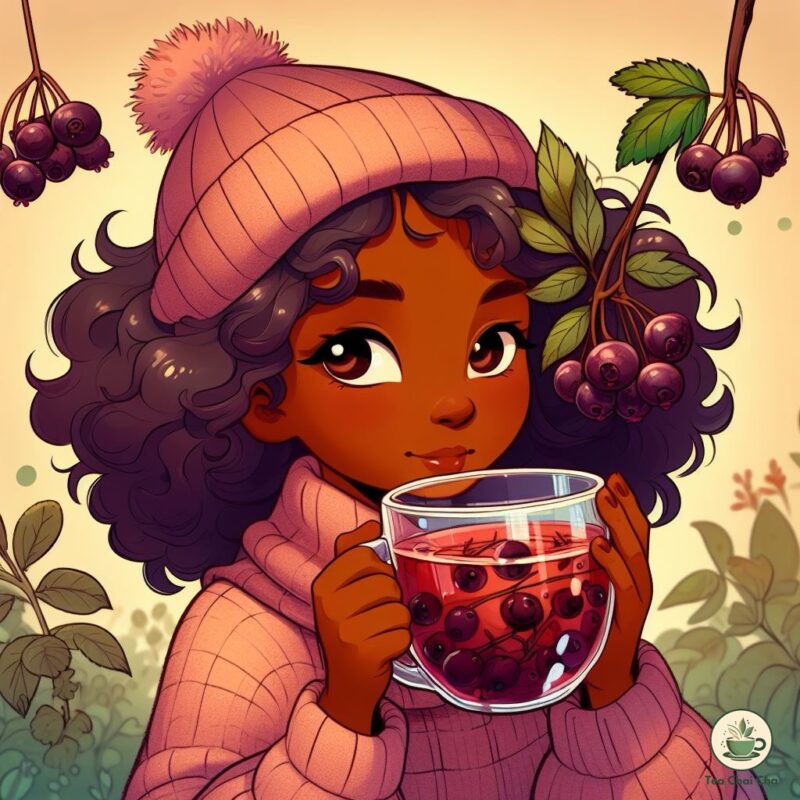Elderberry tea – the name sounds sweet, but does it deliver on that promise?
If you’re someone with a palate that shies away from tartness, the idea of trying elderberry tea might seem a tad daunting.
It’s natural to be concerned about how its tangy notes might hit your taste buds.
So, what does elderberry tea taste like?
Elderberry tea tastes slightly sweet with a hint of tartness. It’s a bit like a milder blackberry or blueberry flavor, but not as strong. The taste is not overpowering, and you might notice subtle earthy undertones as well. Some say it has a hint of floral undertones as well.
It’s pleasant and enjoyable, especially if you like fruity teas.
The taste can vary a bit depending on how you prepare the tea, but it generally retains its unique berry-like essence.
Not enough? Want some in-depth insights on its tasting notes and some flavor pairings?
Read on to find these and more!
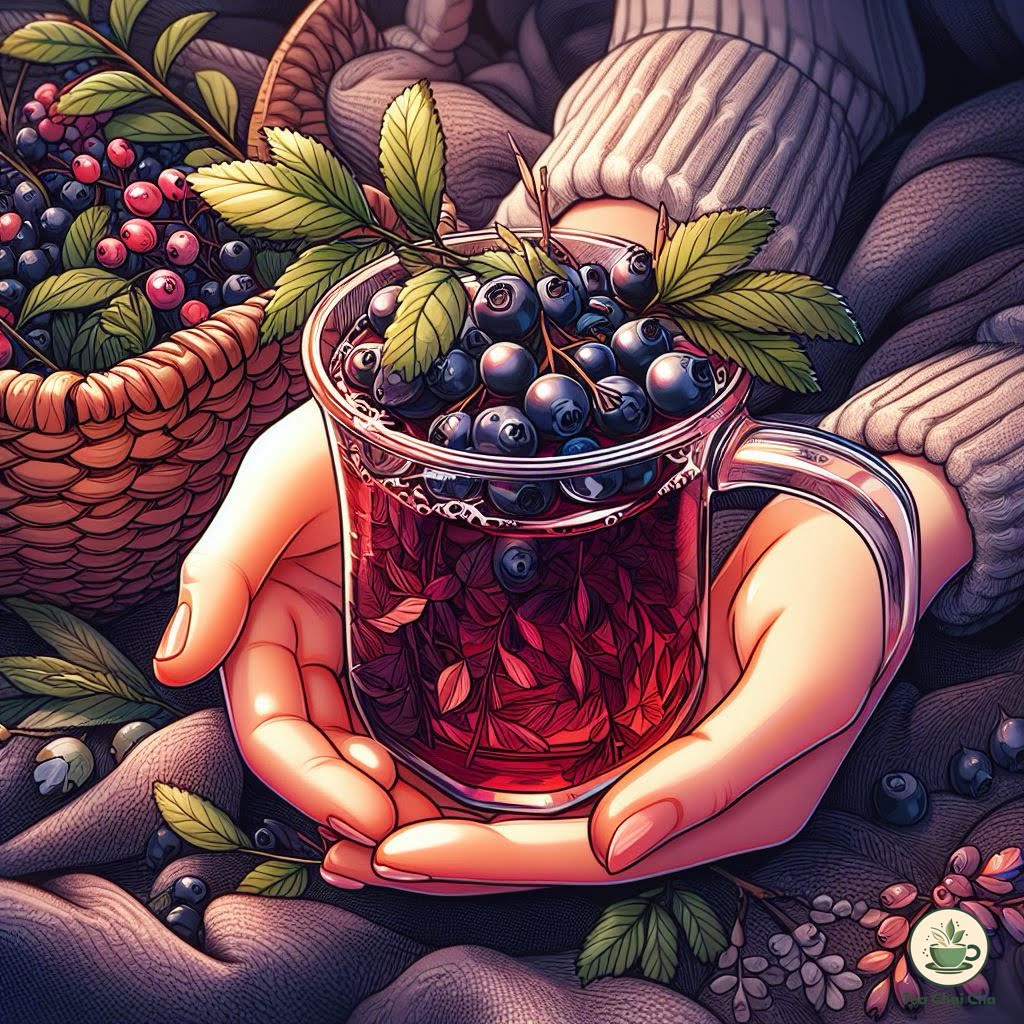
5 Different Tastes of Elderberry Tea
Elderberry tea has its own special tastes that people love.
As you drink it, you’ll notice different flavors. Let’s look at what they are.
1. Tart and Sweet Flavors
Elderberry tea has this cool thing going on with its taste – it’s both tart and sweet at the same time.
When you take a sip, you’ll notice that nice tangy kick followed by a touch of natural sweetness.
The tartness comes from the elderberries’ natural acidity, and the sweetness is all thanks to their sugars.
Some elderberry teas come with a bit of tanginess, kinda like what you get from cranberries or sour cherries.
2. Earthy Undertones
So, as you’re sipping away, you might catch a hint of earthy vibes in there too.
It’s like a subtle reminder that these berries come straight from Mother Nature.
Those earthy undertones give the tea an extra layer of flavor, making it more interesting.
3. Berry Brightness
Another cool thing is this berry brightness.
The tea is beaming with the lively, fruity essence of elderberries.
You can’t help but notice it, and it’s what gives the tea that zesty and refreshing quality.
4. Astringent Touch
There’s one more thing – astringency.
It’s that sensation where your mouth feels slightly dry after a sip.
It’s like a subtle tannic note that can be found in some elderberry teas.
Adds a bit of texture to the whole experience.
5. Hint of Floral
In addition to the primary flavors, elderberry tea can also offer a delicate hint of floral notes.
This floral touch is not overwhelming but adds a layer of elegance to the taste.
It’s also a reminder of the tea’s natural origins, as elderberries grow on beautiful, flowering shrubs.
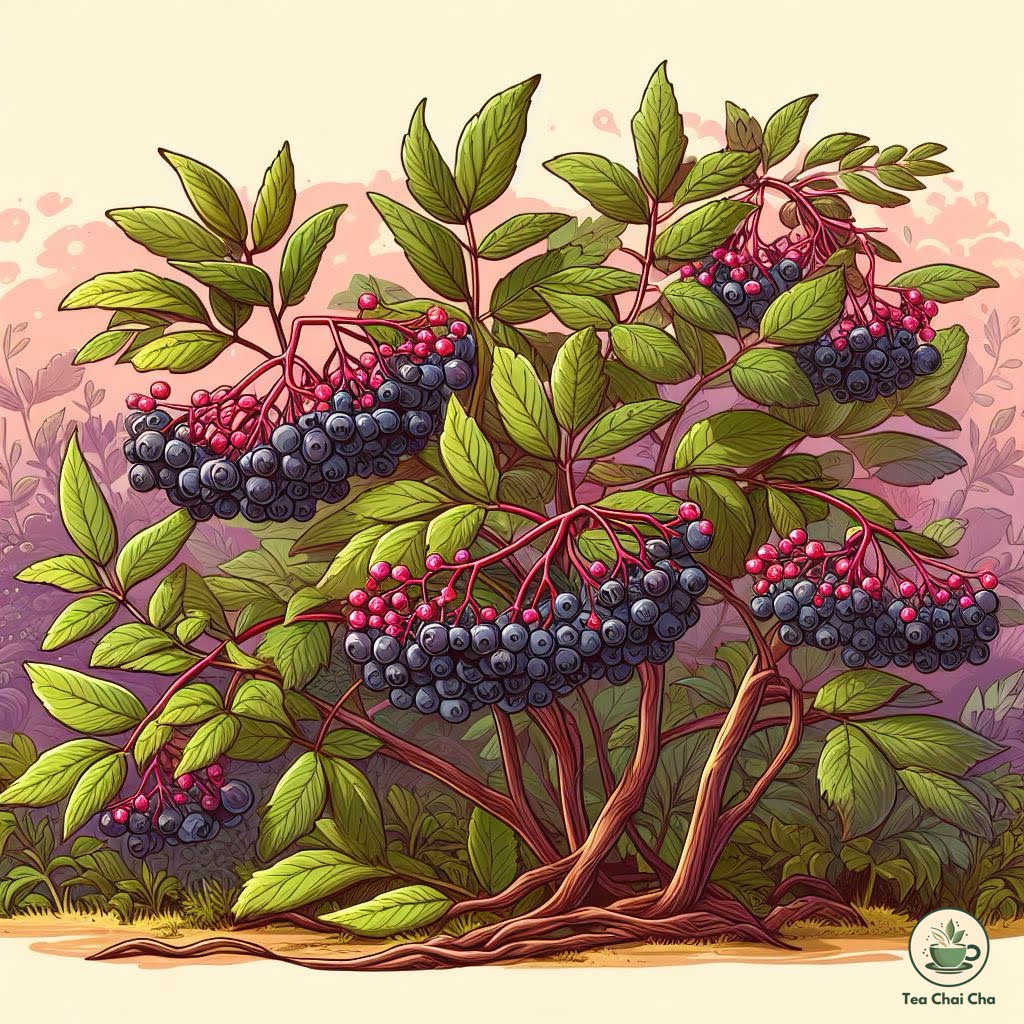
Why Does Elderberry Tea Taste So?
Elderberry tea may taste a certain way to you because of its bioactive compounds.
These compounds influence the flavor and aroma you experience when you drink elderberry tea.
One of them is anthocyanin, which gives elderberries their deep purple color and contributes to the sweet and slightly tart flavor of elderberry tea.
You might also notice a subtle bitterness in elderberry tea, and that’s because of quercetin, another bioactive compound.
Additionally, elderberry tea can taste astringent, which is a dry and puckering sensation, due to the presence of tannins.
If you detect a hint of floral notes, that’s because of terpenes.
These compounds are responsible for the pleasant fragrance, which can influence the tea’s taste.
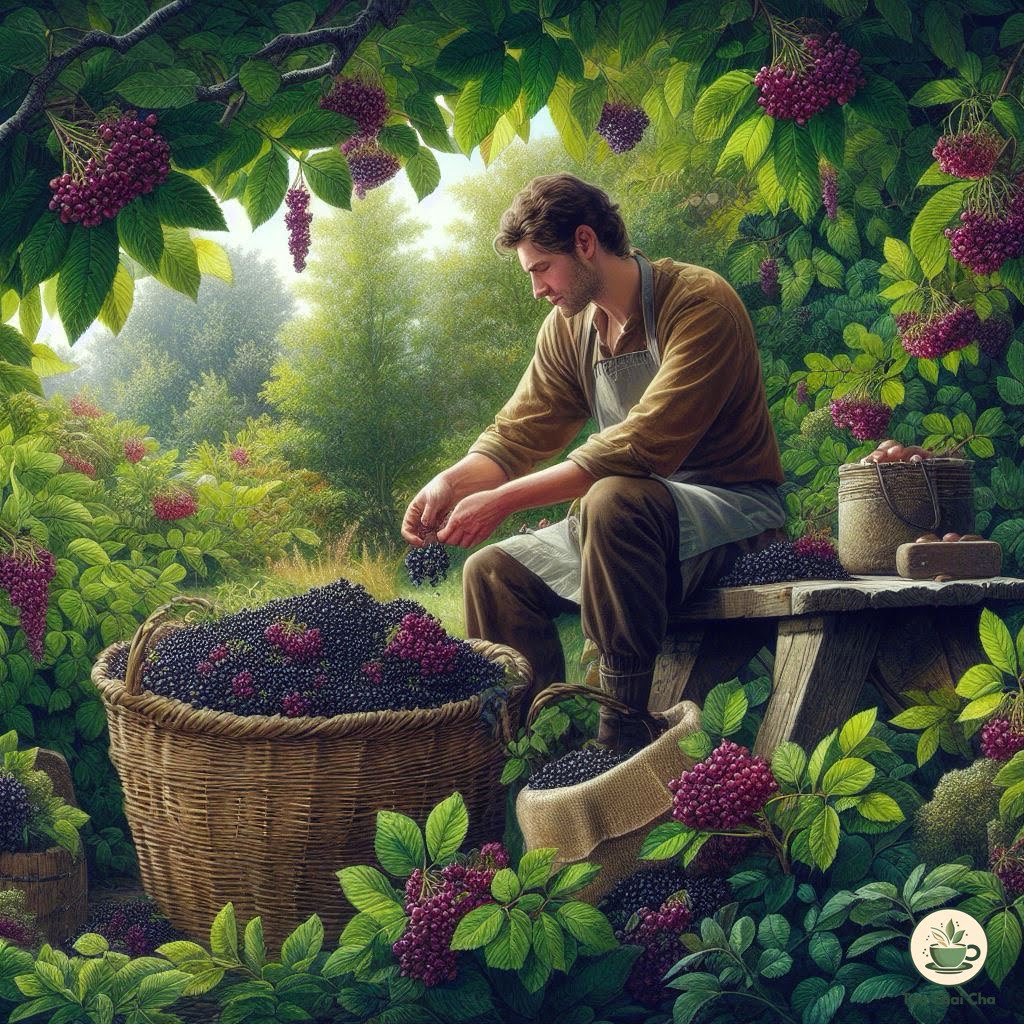
5 Tips to Pick the Best Tasting Elderberries for Tea
When it comes to picking the perfect elderberries for your tea, it’s all about choosing the ripest ones.
Look for elderberries that are dark purple or black.
These are the ones with the best flavor.
Avoid any that are still green or red because they won’t give you the tasty tea you’re looking for.
1. Fresh or Dried? Your Choice
You can make elderberry tea using either fresh or dried elderberries.
Fresh elderberries can be a bit tricky to find, but they often have a more vibrant flavor.
On the other hand, dried elderberries are more accessible and convenient.
It all depends on your preference and what’s available to you.
2. Quality is Key
No matter if you’re going for fresh or dried elderberries, always make sure you’re getting good-quality ones.
For dried elderberries, choose those that are still a bit pliable, not overly dried out.
When it comes to fresh elderberries, keep an eye out for any signs of mold or spoilage.
Quality elderberries are the secret to delicious tea.
3. Organic and Pesticide-Free
If you want a healthier and more natural elderberry tea, go for organic and pesticide-free elderberries.
This ensures your tea is free from harmful chemicals and gives you a more authentic flavor.
You can often find organic options in specialty stores or online.
4. Timing Matters
If you’re planning to pick your own elderberries, be mindful of when you do it.
Elderberries are at their tastiest in late summer or early fall when they’re fully ripe.
That’s when they’re bursting with flavor.
So, aim for this time to get the best berries.
5. Keep ’em Fresh
Once you have your elderberries, store them properly to preserve their flavor.
Store them in an airtight container in a cool, dry place.
This prevents them from losing their delicious taste.
Good storage means your elderberry tea will turn out wonderfully.
What Flavors Pair Well with Elderberry Tea
Elderberry tea has a unique, slightly tart and fruity flavor that can be enhanced when paired with the right foods.
Here are some simple tips to help you make the most of your elderberry tea pairing experience:

1. Complement with Sweet Treats
Elderberry tea’s natural sweetness goes well with desserts like fruit tarts and chocolate-based pastries.
The tea’s fruity notes can balance the sweetness in your treats.
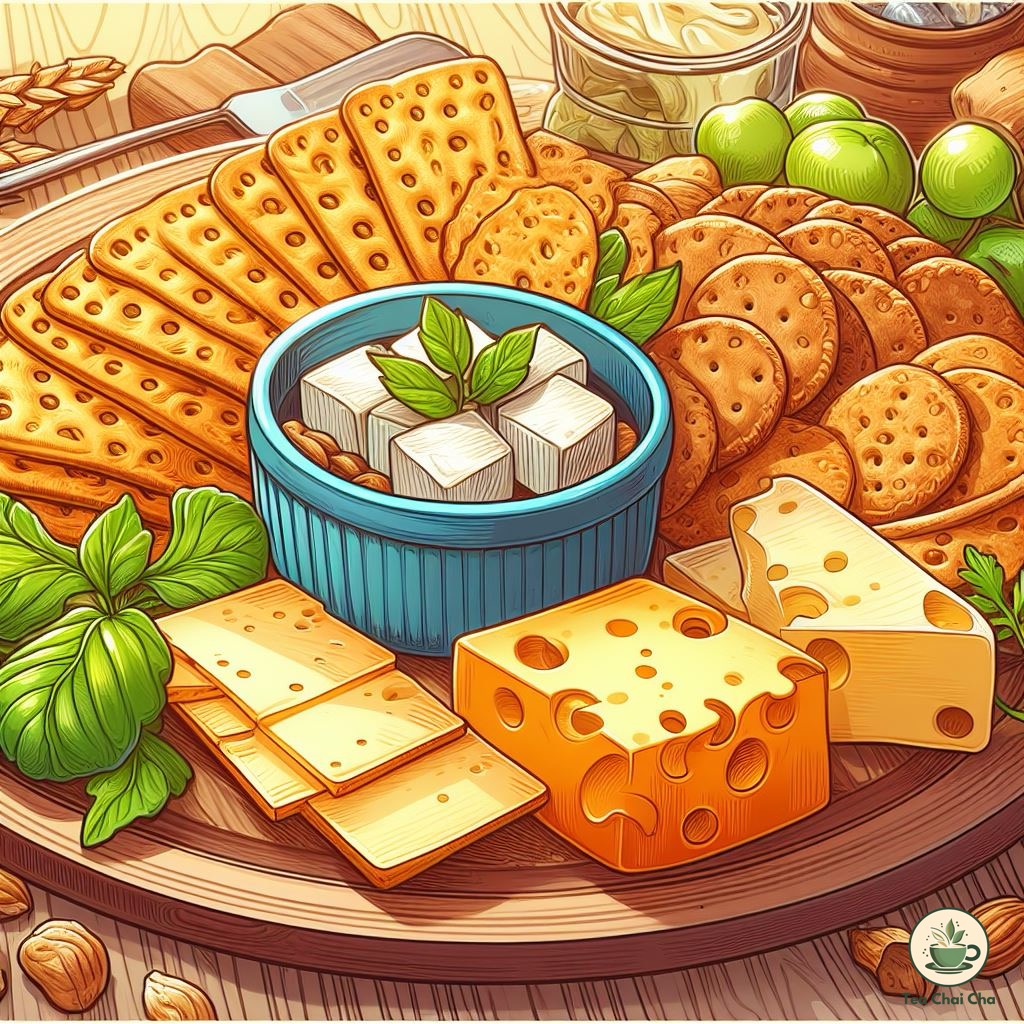
2. Balance with Savory Snacks
If you prefer savory snacks, consider pairing elderberry tea with cheese and crackers, or a vegetable platter with hummus.
The tea’s tartness can cut through the richness of the cheese, while its fruitiness complements the flavors of fresh vegetables.
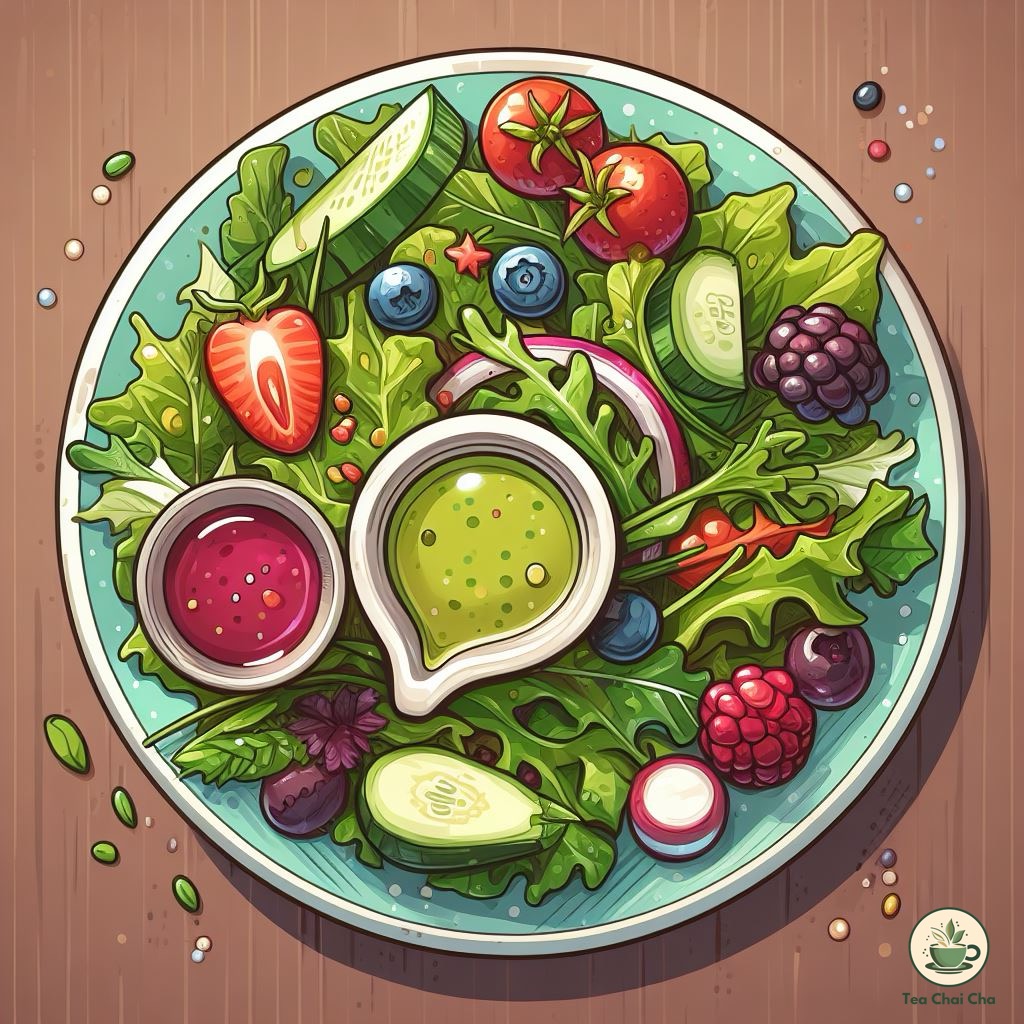
3. Embrace Light Meals
For a light meal, consider serving elderberry tea alongside a salad with a vinaigrette dressing.
The tea’s tangy undertones can harmonize with the salad’s zesty flavors, making for a refreshing and healthy pairing.
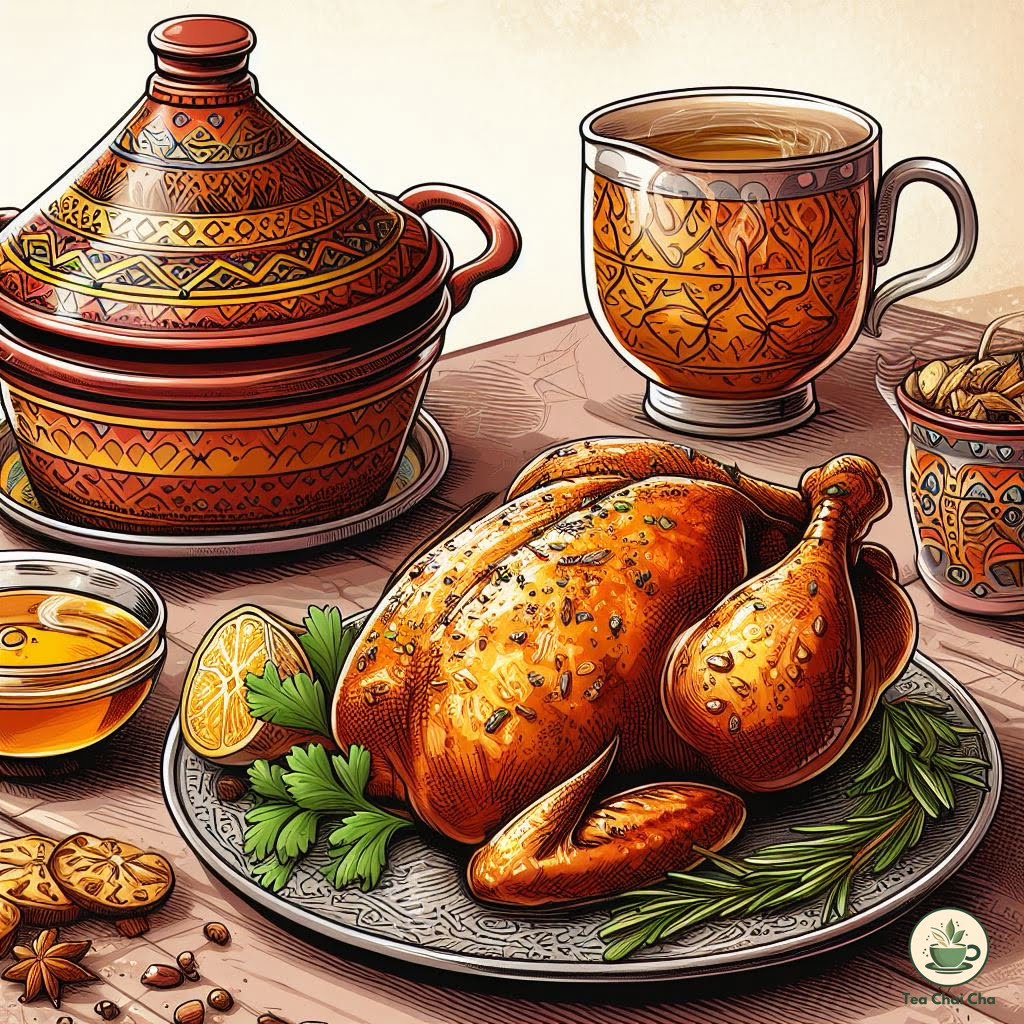
4. Ideal with Poultry
Elderberry tea can be a great accompaniment to poultry dishes such as chicken or turkey.
The tea’s fruity notes can enhance the taste of the meat, making it a delightful choice for a main course.
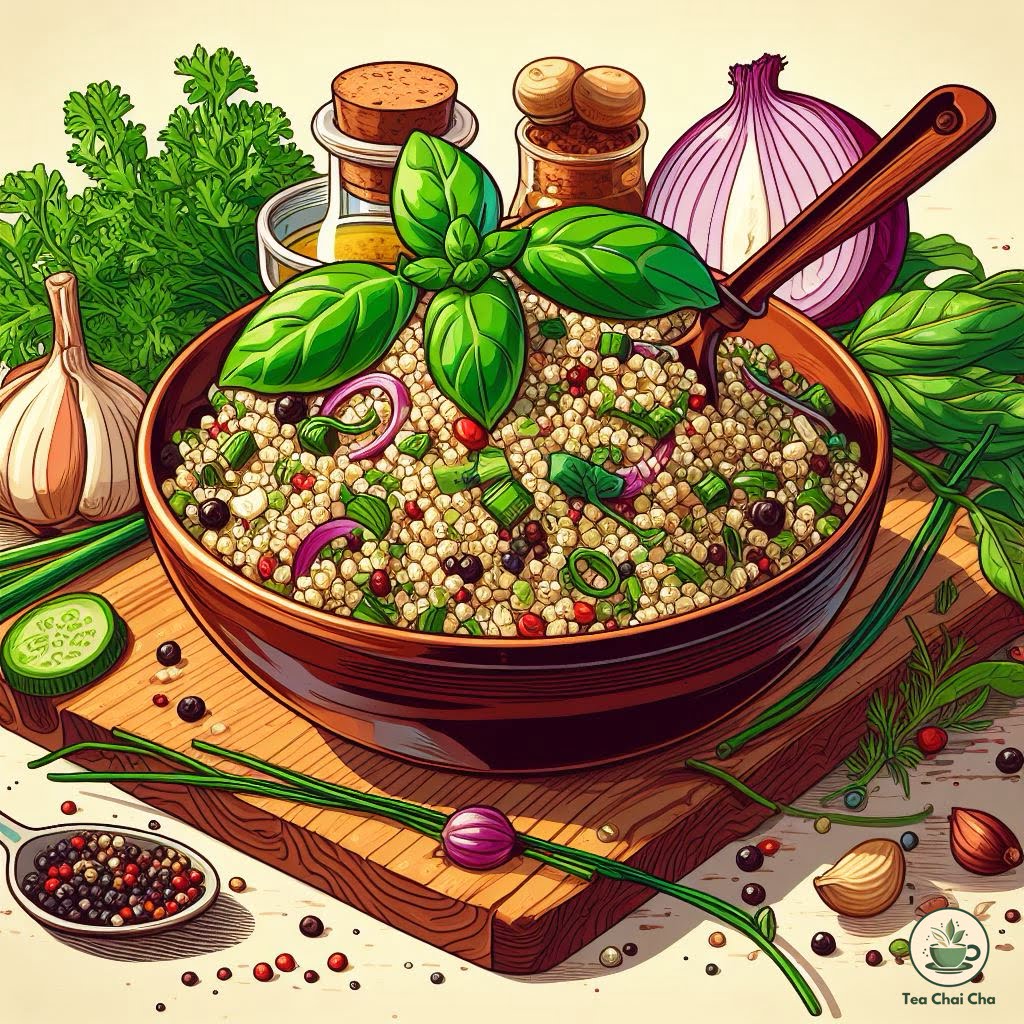
5. Experiment with Herbs and Spices
You can get creative by adding fresh herbs like rosemary or thyme to your dishes when serving elderberry tea.
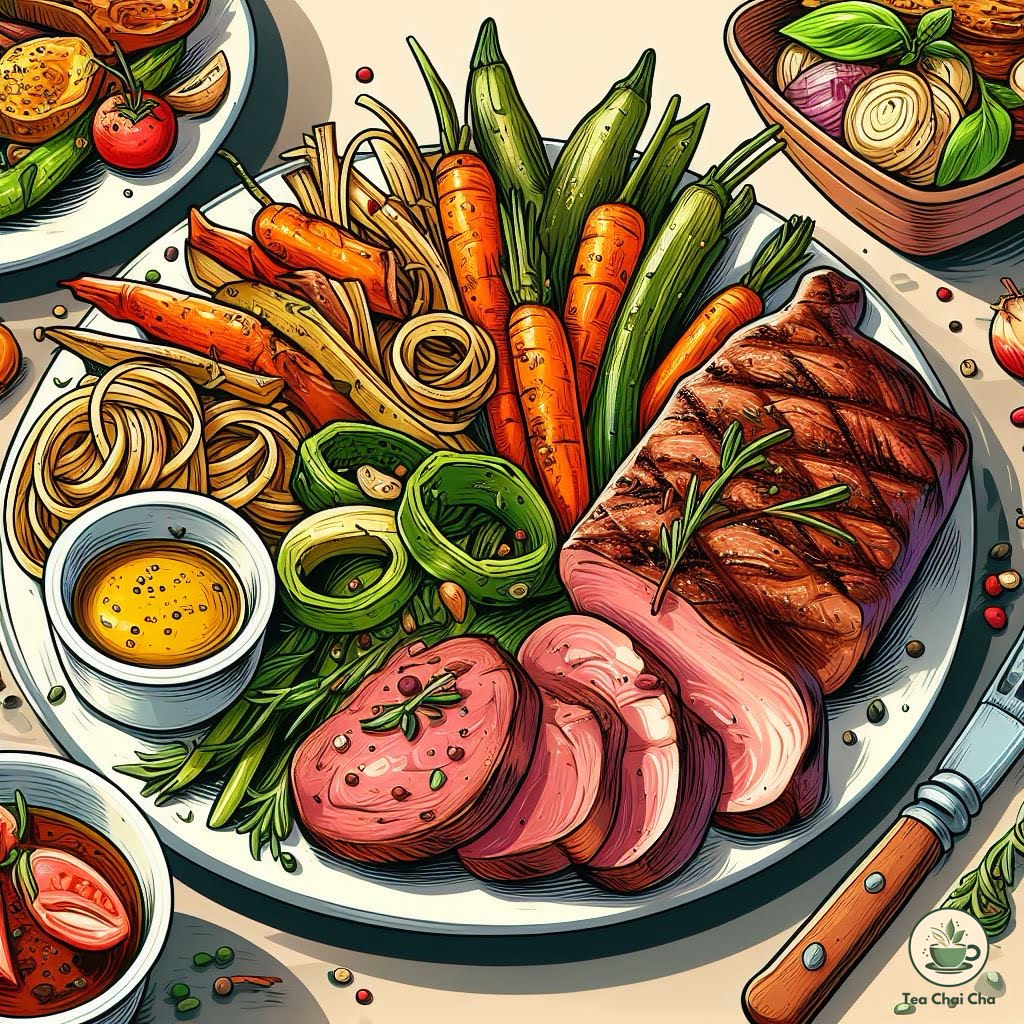
6. Consider Seasonal Pairings
Elderberry tea can be versatile when it comes to seasonal pairings.
In the summer, try it with a fruit salad for a refreshing combination.
And in the winter, opt for roasted root vegetables to add warmth to your meal.
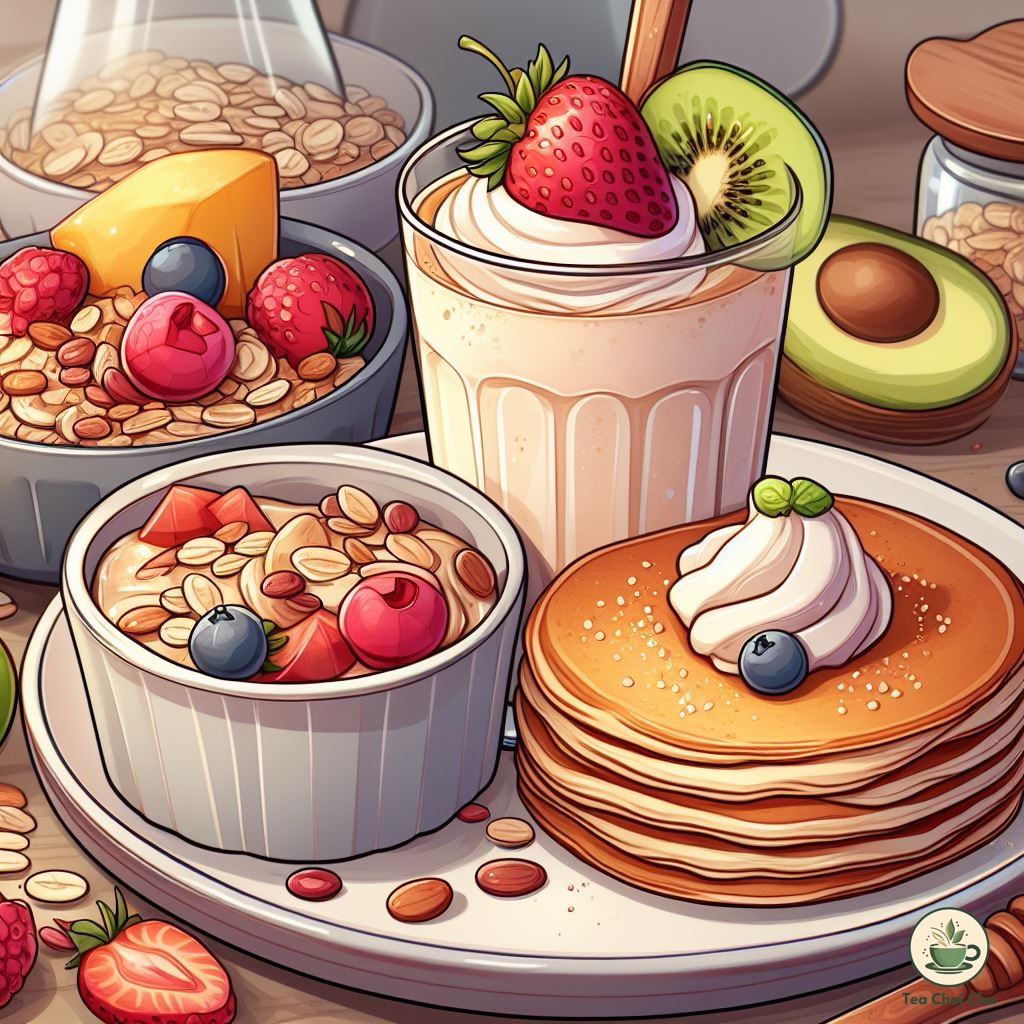
7. Don’t Forget Breakfast
Start your day with a refreshing breakfast by pairing elderberry tea with oatmeal or Greek yogurt topped with honey.
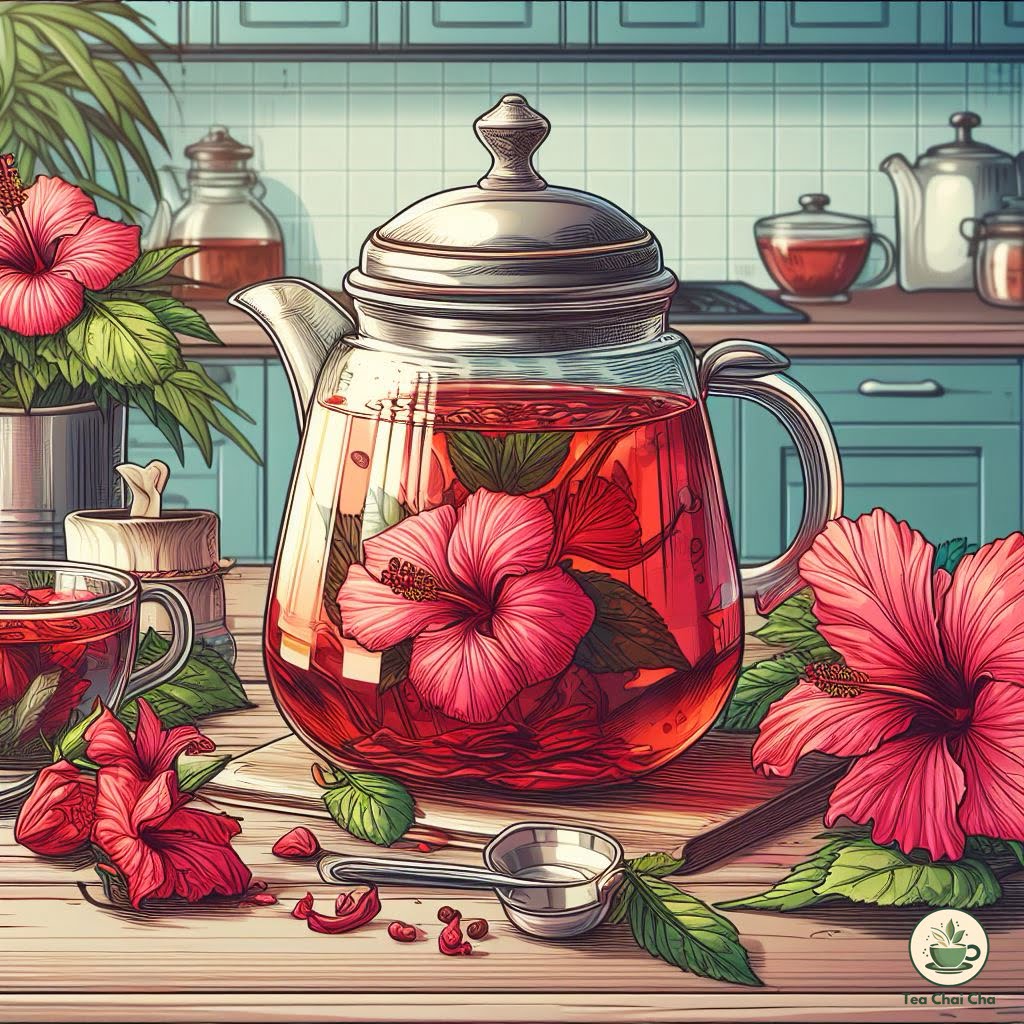
5 Teas That Taste like Elderberry Tea
If you enjoy elderberry tea and want to try similar ones, here are some suggestions from me:
1. Hibiscus Tea
If you like the fruity and tart flavors of elderberry tea, hibiscus tea is a good choice.
It’s tangy and has a bright red color.
Hibiscus tea has antioxidants and might be good for your heart.
You can have it hot or iced, and sweeten it with honey if you like.
2. Blackcurrant Tea
Blackcurrant tea has a natural sweetness and a deep berry flavor, similar to elderberry tea.
It’s caffeine-free and contains vitamin C.
It’s a good option if you enjoy fruity teas.
3. Raspberry Leaf Tea
If you like the slightly sweet and herbal taste of elderberry tea, raspberry leaf tea is worth a try.
It doesn’t taste like raspberries, but it’s mildly sweet.
Some people use it for women’s health and during pregnancy.
4. Blueberry Tea
Blueberry tea has a fruity flavor, similar to elderberry tea but with a distinct blueberry taste.
It’s caffeine-free and can be served hot or cold.
You can add lemon or honey for extra flavor.
5. Cranberry Tea
For a tangy taste like elderberry tea, consider cranberry tea.
It’s a bit tart and is thought to be good for urinary tract health.
You can enjoy it plain or with a touch of maple syrup.

